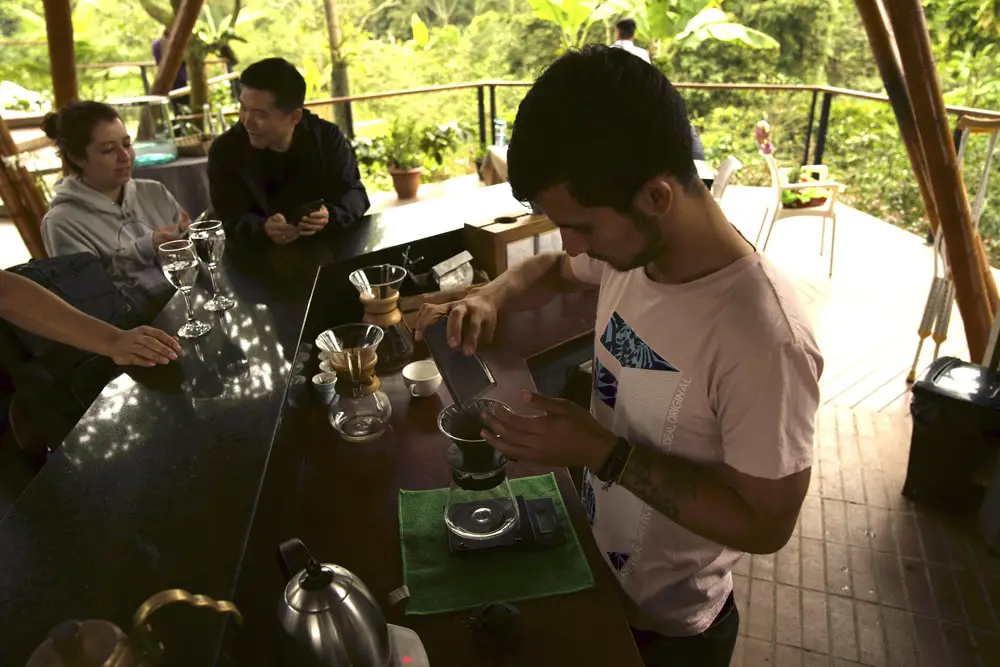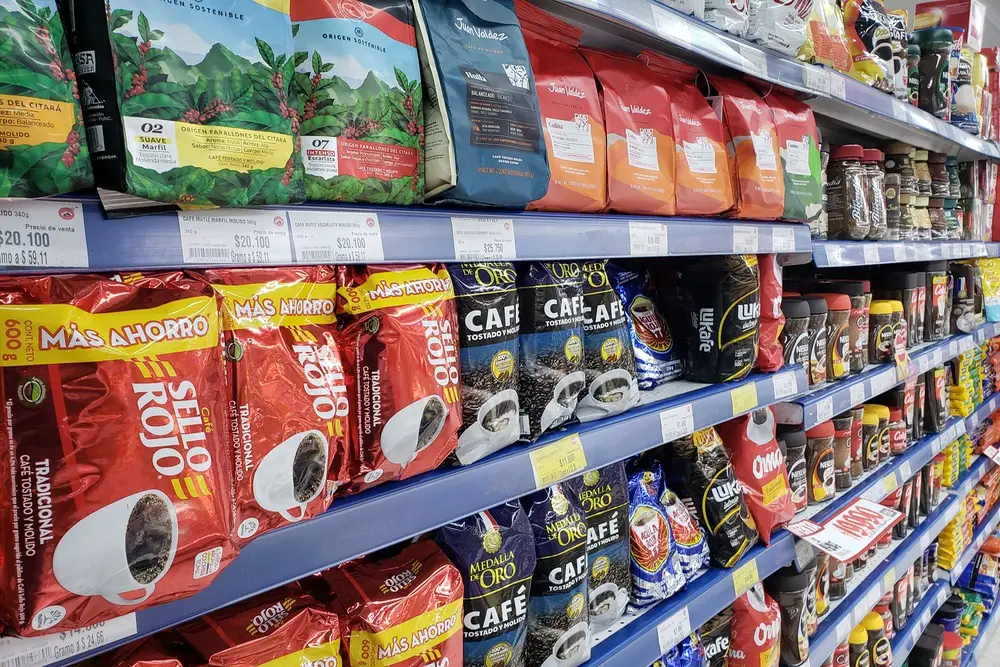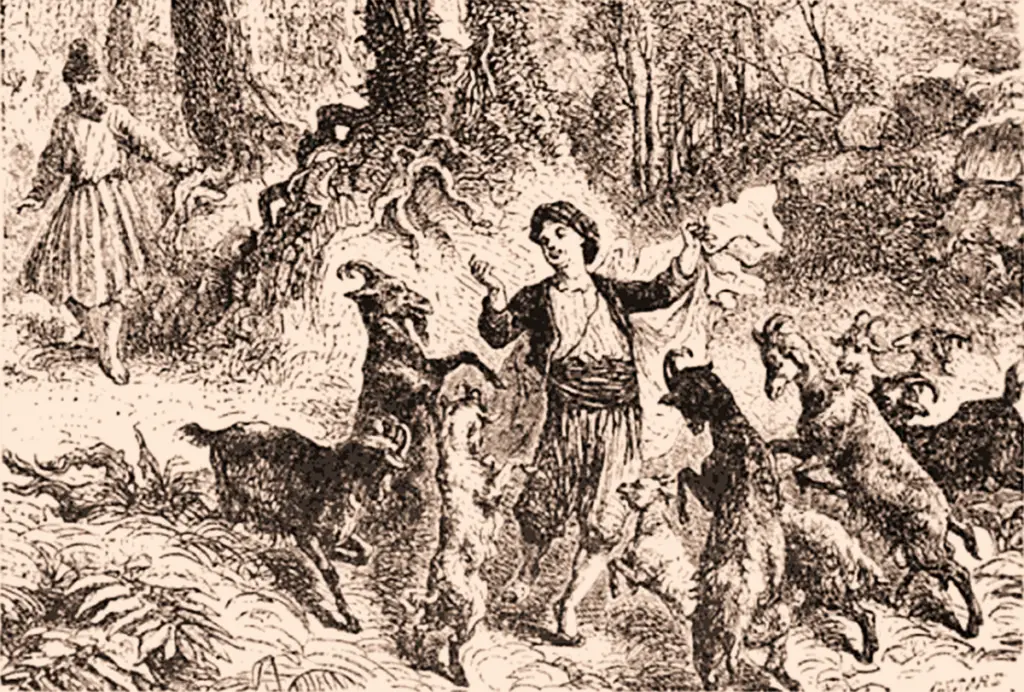The World Barista Championship (WBC) is the most important international coffee competition organized annually by World Coffee Events (WCE). In 2022, the competition will take place from September 27th to 30th in Melbourne, Australia.
The competition focuses on promoting coffee excellence, advancing the barista profession and addressing a global audience with an annual championship that culminates local and regional events around the world. It is a successful and popular event across the industry.
Table of Contents
What are the World Coffee Events?
It is an events management organization incorporated in Dublin, Ireland. It was originally created by the Specialty Coffee Association in 2011 of Europe and the Specialty Coffee Association of America , which have since merged to form the Specialty Coffee Association .
The organization currently hosts 7 annual World Coffee Championships:
- World barista champion
- World coffee in good spirits
- World brewers cup
- world cup buttons champion
- World coffee roasting champion
- world latte art champion
- Cezve / Ibrik champion
What’s the deal with the WBC?
The premise of the competition seems simple: the best coffee is brewed and the best barista wins. For each participant, however, there is more.
The barista must be able to prepare other types of coffee, entertain the audience and be an inspiration to others.
The contestants are the winners of the national barista championships, run by the respective delegates of the Specialty Coffee Association (SCA) or by a recognized independent national body.
Every year more than 50 championship candidates each prepare 4 espressos, 4 milk drinks and 4 original signature drinks in a 15-minute performance with music of the highest standards.
Certified WCE judges from around the world judge each performance based on the taste of the beverages served, cleanliness, creativity, technical ability and overall presentation. With the Signature drink, baristas can let their imaginations run wild and challenge the judges’ palates by incorporating a wealth of coffee knowledge into an expression of their individual tastes and experiences.
Format of the competition
The 15 participants with the highest number of points from the first round and the winner of the team competition advance to the semi-final round. The best 6 participants of the semi-final round advance to the final round, in which the winner is crowned the World Barista Champion.
Every barista has a 44-minute cycle to get their job done. This cycle consists of 7 minutes station prep, 15 minutes prep, 15 minutes competition, and 7 minutes cleanup. If the barista exceeds any of these times, a penalty will be imposed.
Preparation of the station
The competition starts with a station preparation time of 7 minutes. The baristas can choose one of the 9 configurations given by the organizers.
Except for the grinder and the coffee, all devices are identical. The barista can bring their own grinders and the coffee is a personal choice too; tastes differ and not all coffees are available worldwide. There is also the possibility to change the temperature of the water.
Preparation of equipment and details
During the next 15 minutes of preparation, the barista has many things to think about: setting up the booth, setting up the judges’ table, and making sure all the equipment is ready to go. When the clock strikes 15 minutes, it means the prep time is up and the barista should be ready.
Contest
During the 15 minutes of the competition, the barista must serve 4 espressos, 4 milk drinks and 4 signature drinks. In the meantime, he entertains the judges with music and lights, telling them what he’s doing, what he’s serving and anything else he wants to share.
Clean up
After the presentation, the barista has to clean up. This must be done during the 7 minute clean up time, but the time spent will not be scored by the judges.
The judges of the competition
There are two types of judges: sensory and technical. The sensory judges assign points based on various factors, such as presentation, taste and overall balance of the drink. The technical judges, on the other hand, award points for the techniques used by the baristas and the cleanliness of the process.
How do the judges rate?
The organizers of the competition have established 4 points that will be evaluated by the judges:
- The barista has technical skills, manual dexterity, good communication and service skills, and a passion for the job.
- The barista has a broad knowledge of coffee that goes beyond the twelve drinks offered in the competition.
- The barista prepares and serves high quality drinks.
- The barista can serve as a role model and source of inspiration for others.
The jury awards a maximum of 6 points for each criterion. 0 is the worst and 6 is the best rating. The judges can award 0.5 points (1.5, 2.5, etc.).
Selection of the judges
The WBC judges and many of the event organizers are volunteers, demonstrating their commitment to the industry.
Criticism of the judges
Two main criticisms from participating baristas are, firstly, that the judges’ subjectivity is very crucial to the final result and a way should be found to make this more objective.
On the other hand, influencing the scoring of candidates is another problem. Judges with more influence, a higher profile or more experience can unintentionally influence the other judges and their ratings.
WBC sponsors
The World Coffee Championships are made possible through the support and commitment of a wide range of organizations and individuals. An essential part of this support are the qualified sponsors, ie the manufacturers who provide the equipment and products that the participants use on stage.
These sponsors sign multi-year contracts to support the strategic growth of the competitions, and commit time and resources to ensure all World Championship participants use the same high-quality equipment.
Manufacturers subject their devices and products to performance testing to qualify for qualified sponsorship.
Sponsoring Manufacturers 2022-2025
For the competitions, which will take place between 2022 and 2025, there are so far 4 official sponsors, which are published on the official website of the competition. These are:
Temperament
Involved in the Storm Barista Attitude project, which brings together manufacturer know-how, barista expertise and operator experience to produce a range of highly intuitive, robust and easy-to-use espresso machines and grinders for participants.
Arduino Victoria
An Italian company founded in 1905 specializing in the manufacture of high quality espresso machines. In its manufacture, the design of the first models is skillfully combined with new technologies.
Coffee
Cafetto manufactures cleaning and disinfection products for espresso, coffee and beverage dispensing equipment.
Cafetto offers cleaning products that improve equipment performance and simplify cleaning processes. The company has an extensive product portfolio and a global network that supplies cleaning products to both the commercial and private markets.
BWT water+more
BWT water+more was founded in 2005, is a member of the global Best Water Technology (BWT) group and specializes in water filtration. The BWT Group is the European market leader in water treatment with around 5,000 employees in 70 subsidiaries and associated companies.
How to prepare for the WBC
The most important part of the competitions usually takes place before the event, it’s all about the preparation.
Without thorough preparation, a smooth and flawless presentation becomes complicated or impossible. The baristas who want to compete at the WBC say that “sacrifices have to be made”. Some of these are financial, but the most important is the time commitment.
Here are some tips to prepare if you’re interested in attending or want to know what the WBC journey entails for a barista.
Find out about the rules
The most important aspect of the championship is its rules. Barista championships have been held for a long time; there are changes from time to time and there are many specifics that are not in the rules but must be observed to ensure the success of the participants.
Choosing an inspirational coffee
The next important step is choosing the coffee. The coffee must be appropriate to the championship. If you don’t have the opportunity to buy a luxury coffee with accurate espresso flavor descriptions, the next best option is to choose a coffee with good balance and tactile qualities. Finally, the coffee should be something that pleases and inspires.
Careful planning of the presentation
Now it’s time to plan the presentation and write a speech, or more precisely, to develop the concept of the presentation.
The presentation should be structured in a way that is easy to listen to, so that the judges can easily perceive your descriptions of the taste and aroma of the coffee.
explain the recipes of your milk drinks and your original signature drinks.
A journey to the origin of coffee
Try to spend as much time as possible with the coffee producers in your country to learn as much as possible. The producers have an in-depth knowledge of coffee that you should learn.
The trip also has an interesting motivational value. It fosters the passion necessary to dedicate months to preparation.
A visit to the unique farms to see first-hand the beauty and early life cycle of the beans can give coffee a whole new meaning.
Experiment
After choosing the coffee, it’s time to do several experiments. First try different roast profiles and then drink an espresso on different days, always taking detailed notes.
This experimentation can be exhausting, but it should be done to gain a deeper understanding of coffee. That is, until you know the balance and harmony of all the elements that make up the flavor of coffee and how to manipulate them.
Confidence
The countless experiments, the journeys to the Source, and all the hours of study and practice are reduced to 15 minutes.
This can be nerve-wracking, but trust must be maintained. It’s important to be psychologically prepared because you only get one chance. The slightest doubt can have fatal consequences for your performance and later result in the competition.
Practice, practice, practice
The more you practice, the better your motor memory will remember the sequence and the less time you will spend structuring the actions and sentences during your presentation.
You can also joined a class or group to practice even more.
WBC champions year after year
Since its inception in 2000, the World Barista Championship has been a showcase for the international coffee industry at large, providing a platform for the best talent and the most exceptional coffee producers. Only a select few can claim to be champions.
| Year | winner | nationality |
| 2000 | Robert Thoresen | Norway |
| 2001 | Martin Hildebrandt | Denmark |
| 2002 | Frits Storm | Norway |
| 2003 | Paul Basset | Australia |
| 2004 | Tim Wendelboe | Norway |
| 2005 | Troels Overdal Poulsen | Denmark |
| 2006 | Klaus Thomsen | Denmark |
| 2007 | James Hoffman | United Kingdom |
| 2008 | Stephen Morrissey | Ireland |
| 2009 | Gwilym Davies | United Kingdom |
| 2010 | Michael Phillips | United States |
| 2011 | Alejandro Mendez | El Salvador |
| 2012 | Raul Rodas | Guatemala |
| 2013 | Pete Licata | United States |
| 2014 | Hidenori izaki | Japan |
| 2015 | sasa sestic | Australia |
| 2016 | Mount Wu | Taiwan |
| 2017 | DaleHarris | United Kingdom |
| 2018 | Agnieszka Rojewska | Poland |
| 2019 | Jooyeon Jeon | South Korea |
| 2021 | Diego Campos | Colombia |
The secrets of the champions
Participants in tournaments like the WBC have years of experience and have shown great dedication to their craft. What seems to be the same for everyone is a passion for coffee, be it as a luxury, as a science or as an art form.
The WBC needs people with all-round talent. At the very least, you must have a very good command of the barista equipment, such as the grinder and the espresso machine.
Champion of 2016
Berg Wu meticulously planned to use a new 2015/2016 vintage of washed geisha from Finca Deborah. It is a coffee grown using high-quality cultivation methods that result in a bean with a honey-like sweetness.
Champion of 2017
Dale Harris’ scientific approach, on the other hand, was to use a gas chromatograph and mass spectrometer to explore how flavor-influencing aromatic substances would help his winning entry to gain additional insight into the taste of his coffee.
Champion of 2018
Agnieszka Rojeska ‘s winning drink was a reinvention of the naturally bitter gin and espresso tonic. She created a tart citrus tonic to counterbalance the coffee, Turkish quince juice for sweetness and gin for strength. He used a complementary naturally brewed Ugandan filter coffee to balance the bitterness of the espresso while maintaining a fuller body with notes of plum, rum and cherry.
Conclusion
The World Barista Championship is a very important event in the coffee industry, measuring the best baristas in the world to demonstrate their skills that go beyond making great coffee.
In addition to the tournament preparation recommendations above, baristas who serve coffee daily and strive for excellence should listen to their customers, learn as much as possible about coffee, recognize good coffee and its importance, be friendly, be unique, and keep their workspace clean keep.



